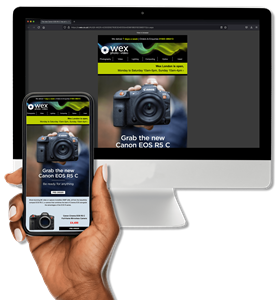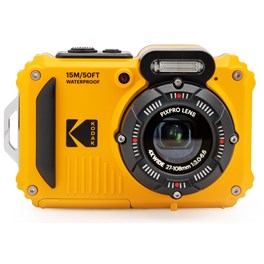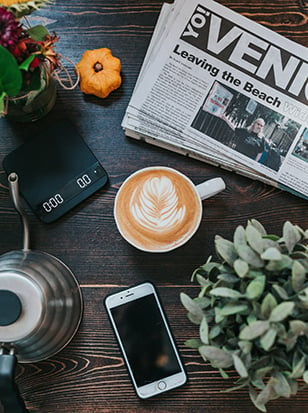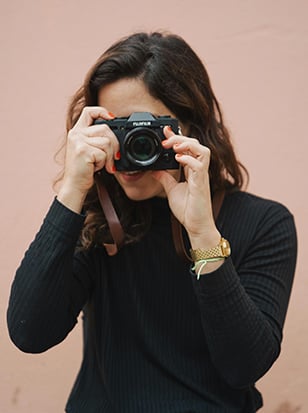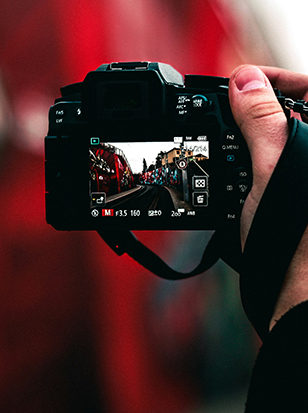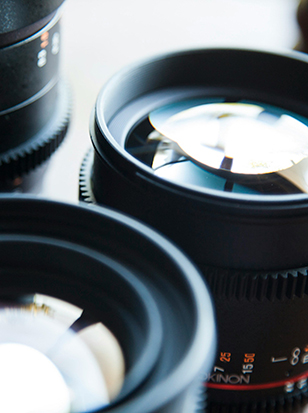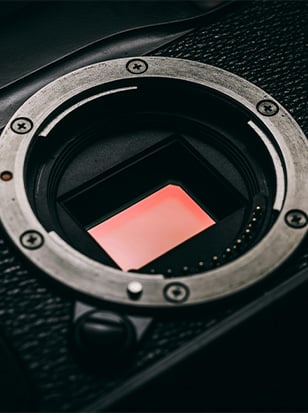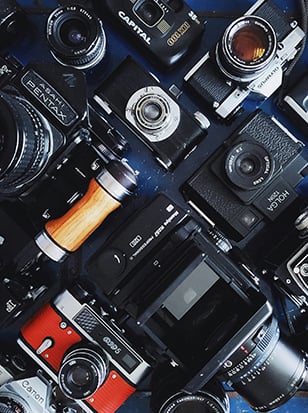
With the best cameras for kids, you can encourage a child’s burgeoning image in photography. With a dedicated camera, a kid has the chance to get up close and personal with the process of image making, enjoying a more tactile experience than they’d get from a smartphone. Many camera manufacturers have also leaned into this, offering brightly coloured camera designs that are designed to appeal to little ones.
In this guide, we’ve included a mix of film and digital cameras. Film cameras are great for kids, especially instant ones, as they produce physical prints that can be kept in scrapbooks or mounted to pinboards and posters, etc. However, they do come with ongoing costs, so we’ve also included a range of kid-friendly digital cameras.
Read on to see our team’s picks of the best cameras for kids…
Film and instant cameras
|
Pros:
Cons:
|
Film Type: Fujifilm Instax Mini Instant Film Lens: 60 mm, f12.7, 2 elements in 2 groups Shutter Speed: 1/2 to 1/250 sec. (programmed electronic shutter) Flash: Constant firing flash (automatic adjustment), effective range 0.3–2.2 m Weight: 306 g (without batteries, strap, and film |
The Instax Mini is an obvious choice for kids. It is small, cute, and doesn’t require that much supervision. It is straightforward to use, although the adult should probably load the film before handing it over. The results are immediate — the shutter button is pressed, and moments later, a tactile print comes out that can be pinned to boards or stuck to scrapbooks. The exposures are completely automated, so there’s no danger of wasting film through using the wrong settings, and the camera even has a selfie mirror.
Film for Fujifilm Instax Mini cameras can be bought in colour or monochrome flavours — kids will likely prefer colour but you can always mix and match.
|
Pros:
Cons:
|
Autofocus System: 2 fixed focus zones (0.55–1.3 m, 0.6 m–infinity) Battery: Internal lithium-ion (USB-C charging) Exposure Modes: Automatic, Double exposure Shutter Speed: 30 sec to 1/200 sec Weight: 434 g |
Polaroid has been steadily refining its instant film camera offering since the brand’s reinvention at the hands of the Impossible Project. The Polaroid Now Gen II Instant Camera is the best yet, and while its various shooting modes and settings controls mean it might be a little complex for very small teens, it’s an ideal choice for tweens and teens who want to get to grips with a camera and still have fun.
It’s compatible with the latest I-type film — available in colour or black and white — and these make classically sized Polaroid prints with all the lo-fi charm you remember them having. They do cost more per shot than Instax, which again makes the Polaroid a better choice for older kids who might be a bit more judicious with the shutter button. Also, if you have any old Polaroid 600 film kicking around in the loft or the basement, it’ll take that too!
Pros:
- Double the shots from a roll of film
- Built-in star filter for creating fun effects
- Compact, lightweight and portable
Cons:
- Plasticky build is not the most robust
- Kids will likely need help loading and unloading film
Film is obviously a lot of fun — a great way to teach kids about the history of image-making. However, it can be expensive, especially if your kid is particularly snap-happy. The Kodak Ektar H35N is a great way to stretch your film further. It’s a half-frame camera, which means pretty much what it sounds like: it shoots film half a frame at a time, meaning that a roll of 36 frames will give you 72 half-size shots (and half of a full frame of film still looks pretty good).
As it’s an affordable camera, it’s built from plastic, and a bit of care should be taken when handling it. It’s available in a ton of different colour options, and features a built-in flash for low-light situations, powered by an AAA battery.
|
Pros:
Cons:
|
Film Type: 35mm, ISO 800 Kodak film (preloaded) Exposures: 39 exposures per camera Flash: Manual operation, range 4–10 ft Image Quality: 23% improvement over ISO 400 film |
Remember when a holiday wasn’t complete until your disposable camera pictures had come back from the developers? Why not recreate that magic for your kids with the Kodak Fun Flash Single Use Camera 27+12 Exp — a pre-loaded single-use film camera that’s ready to go with 39 colour shots. The film that’s loaded in has a speed rating of 800 — this means it does a solid job when the light gets low, though you’ll also be helped out there by the built-in flash.
As this is a single-use camera, it’s worth making sure that whoever you send it to for development will dispose of it properly — a good film lab should have a policy in place whereby the parts are either recycled or sent back to the manufacturer for reuse, but it’s always worth checking.
|
Pros:
Cons:
|
Film Type: 35mm film (preloaded with 24 exposures, ISO 400) Lens: 31 mm, f11 fixed focus Shutter Speed: 1/120 sec Flash: Built-in (powered by 1 AA battery) Dimensions: 11.4 x 6.1 x 3.2 cm |
Also available in: red, yellow, turquoise, lavender, and grey.
A point-and-shoot film camera that comes in plenty of different colourways, the Yashica MF-1 Snapshot Art Camera Y Edition is a stylish option for kids who are getting interested in photography. While loading and unloading the 35mm film is probably something that would benefit from adult assistance, once it’s up and running, the camera is incredibly simple to operate — you point, you shoot. There’s a built-in flash to aid with low-light photography, and the 31mm lens provides a broad focal length in the classic disposable-camera perspective.
In a nice touch, the camera also comes packaged with an AA battery and a roll of Yashica 400 colour negative film, meaning it’s ready to be set up and used straight out of the box. The Yashica film is a nice emulsion – with fairly natural colours, it’s a good option for portraits. This camera might eventually feel a little limiting to a kid who starts to get serious about photography, but it’s a brilliant take-everywhere starting point for the photo-curious.
Digital Cameras
|
Pros:
Cons:
|
Image Sensor: 5MP to 30MP selectable resolution Video: Up to 1080p HD recording Lens: 7.36 mm, f/3.2 fixed focal length Zoom: 8x digital zoom Weight: 256 g (with battery) |
Adorned with designs of classic Peanuts characters, the Yashica X Peanuts Mini Digital Camera is going to be an easy sell to any Snoopy-obsessed kid (full confession: I used to be one, and this would have worked on me). While it’s not going to scoop any awards for image quality, it’s got a decent 4x zoom lens that gives some scope for experimenting with composition. Most kids will find it easy to use, and the rechargeable battery that can be topped up via USB-C means you don’t have to worry about remembering to buy AAs or anything like that.
For kids who are a little older and looking for something more advanced, there’s also the Yashica X Peanuts Digital Camera, a similarly Snoopy-adorned camera that offers an 8x digital zoom and support for 64GB microSD cards, as opposed to just 32GB on the Mini version.
Pros:
- Playful Hello Kitty-themed design available in pink and white
- Very easy to use with minimalist controls
- 2.4-inch screen for preview
Cons:
- High-resolution mode is interpolated
- No manual control
With its kitschy Hello Kitty-themed design, the YASHICA DZ-100 is immediately going to catch some kids’ attention. Underneath the shell, it’s a pretty simple digital camera, with minimalist controls and a 2.4-inch screen. This isn’t a camera designed for kids who are seriously trying to learn photography — it’s knockabout fun with the iconic cat design on it. Resolution is quite low; it’s worth noting that the advertised 44MP mode is interpolated, not native resolution (though it’d be pretty surprising if it was otherwise). It’s available in both pink and white colourways.
|
Pros:
Cons:
|
Sensor: 16.35MP 1/2.3" BSI CMOS Waterproof: Up to 49.2 ft (15 m) Shockproof: Up to 6.6 ft (2 m) Lens: 4x optical zoom (27–108 mm equivalent) Video: Full HD 1080p at 30 fps |
Another waterproof camera that doesn’t mind being dropped (sensing a theme here?), the Kodak Pixpro WPZ2 makes for a brilliant companion for beach holidays or days by the pool. Coming in a range of colours (white, yellow, red and blue), the WPZ2 has a chunky, easy-to-handle grip and a 4x optical zoom lens. It’s probably not suitable for very little kids, but more advanced ages won’t have a problem (though they might need to get used to the fact that the rear-LCD isn’t a touchscreen).
Battery life lasts well, and the camera offers Full HD movie mode as well as the ability to shoot stills. You can also connect it to your device via Wi-Fi, making it easy for you to offload and save your kids’ creations for them to enjoy later. Or, to embarrass them with a few years down the line. Whatever you prefer!
Pros:
- Big 40x optical zoom lens
- Powered by cheap, common AA batteries
- Optical stabilisation makes telephoto lens easier to use
Cons:
- Fairly standard-to-average image quality
- No viewfinder
A bridge camera can be a tremendous way for kids to learn the ropes of photography, with a broad zoom lens that can cover wide-angle to telephoto. Unfortunately, many bridge cameras cost a little more than most would ideally like to spend on a camera for a young one — but that’s where the Kodak Pixpro AZ405. An incredibly affordable bridge camera, it delivers an easy-to-use, SLR-like body with a huge 40x zoom lens that covers an equivalent 24-960mm range.
It’s ideal for a kid’s holiday camera, as it’s powered by common AA batteries, and despite its big zoom lens is relatively portable. A built-in stabilisation system helps make the extreme end of the zoom range easier to use, and the bright LCD screen provides a useful means of image preview and review. For older kids who are developing an interest in photography, this is a great and cost-effective buy.

FAQs
What is the best age to introduce a camera to a child?
Kids can start using a camera around 3 to 5 years old. At this age, they will be more likely to understand basic photography concepts and handle simple point-and-shoot cameras. Look for ones with big buttons and durable designs perfect for their smaller hands.
What features should I look for in a camera for kids?
When picking a camera for kids, durability and ease of use are key. Choose one that's tough, with shockproof and waterproof features to handle drops and spills. Simple controls with large buttons make it easy for kids to use. Fun extras like games, photo effects or video recording can keep them interested and entertained.
Are digital cameras or instant cameras better for kids?
Both have their perks. Digital cameras let kids take lots of photos without worrying about film and often have video and editing features. Instant cameras give the fun of immediate prints, which can be really exciting for kids. It really depends on whether you prefer the versatility of digital or the instant fun of print photos. Either option will help get your kids excited about photography.
How do we decide?
Our in-house photography experts, store staff and partners all work collaboratively to pour over our guides and tips articles. We also consider emerging trends and customer feedback to make sure our guides are always up-to-date and reflective of what people are truly looking for. By curating only the best products, our guides provide trustworthy recommendations, making it easier for customers to make informed choices with confidence.
If you would like more advice on any purchase our contact centre staff are here to help. Alternatively, you can reach us via email or social media. And don't forget. If you were to purchase anything based on our recommendations you'll be covered by our full returns policy
The Wex Blog
Sign up for our newsletter today!
- Subscribe for exclusive discounts and special offers
- Receive our monthly content roundups
- Get the latest news and know-how from our experts
